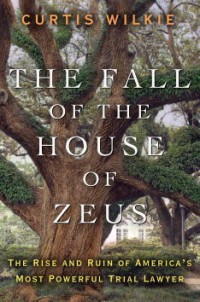New Scruggs Book Worth a Read, But Not Because Trial Lawyer Is Interesting, Review Says

Ex-attorney Richard “Dickie” Scruggs isn’t interesting enough to justify having an entire book written about his downfall as a onetime trial lawyer money machine. However, a new book about Scruggs, The Fall of the House of Zeus, is worth a read just the same, for what it says about the justice system, writes attorney Ben Toledano in a Washington Times review.
Now disgraced and convicted in an attempted judicial bribery scheme, Scruggs was never a true trial lawyer, because his primary role was as “a businessman specializing in the mass-marketing of personal injury claims,” says Toledano. Living large as a result of his tobacco litigation work, Scruggs tired of his homes, yachts and planes and went back to work because he had no hobbies or cultural interests to occupy himself aside from making money.
But Hurricane Katrina insurance coverage claims and related matters led to Scruggs’ downfall when he tried to win through dirty tricks.
Author Curtis Wilkie, who was a friend of Scruggs, tries to understand why he did what he did and even suggests that a prescription drug Fioricet could be to blame. Meanwhile, Scruggs’ lawyer, John Keker, suggested that only a great novelist could enter into his client’s mind.
But the answer to this question of why is relatively simple, in Toledano’s opinion, and what he describes as the unintended theme of the book—“the nature and the quality of justice”—are what make it compelling, he says.
“No one believes that the justice system can be either perfect or pure because judges, lawyers, jurors, witnesses and government officials are human beings,” he writes. “Nonetheless, justice must be, as much as possible, an impartial and unbiased application of the law to the facts, which means that those who serve the law must be the best we have.
“Dickie Scruggs”—who, according to his fraternity brothers at the University of Mississippi, thought of himself as a Greek god—“chose to serve himself.”
For more background on Scruggs, see:
ABAJournal.com (Feb. 2009): “Scruggs II: Once-Renowned Trial Lawyer Pleads in Another Court Corruption Case”
ABAJournal.com (July 2009): “Miss. Judge Bobby DeLaughter Pleads Guilty to Scruggs-Related Obstruction”
Times Topics (New York Times): “Richard F. Scruggs”



